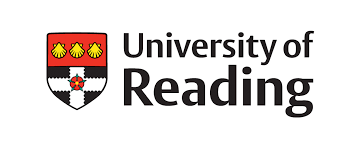Archaeology

Progression Summary
Study with us and join a department that has an outstanding record in student satisfaction, with scores consistently between 90%–100% for overall student satisfaction in the National Student Survey 2010-2018[1]. Archaeology is an academic subject that will teach you valuable theoretical and practical skills, with opportunities to use specialist equipment, work in laboratories and access three superb on-campus museums. At Reading, we are especially focused on issues from the past that are critical to our shared global future – human diets and health, climate change, inequality and resilience, migration and identity. Learn from staff who are experts in their field on topics such as burial archaeology, material culture, bioarchaeology (including human remains), forensics and past environments (including geoarchaeology). You will get to study the material traces of past societies, handle human remains and learn about burial archaeology, and realise how ideas of gender are reflected and imposed through the material world. There will be fieldwork opportunities and chances to work with experts on live research projects where you can put your skills into practice, including excavation, surveying, GIS (geographical information systems) mapping, planning, and finds processing, and contribute to new archaeological knowledge through our discoveries. At the end of the first year you will get to take part in one of the most popular parts of our courses; an excavation trip on which you will receive high-quality training in a range of practical archaeological field techniques. In addition to getting involved with archaeological excavations in the UK and Europe and developing the practical techniques to carry out digs, you will also gain skills required to analyse human and animal bones, objects and plant remains in order to understand past societies. If you are interested in studying abroad, the Department of Archaeology participates in the Erasmus+ scheme. Placement opportunities are also available in a variety of contexts, enabling you to enhance your skills, develop a network of contacts and strengthen your employability. Recent examples include a traineeship with Oxford Archaeology and a placement on the Mediterranean Palaeoclimate Project. We encourage and provide opportunities for you to undertake placements, enabling you to boost your work-related skills and develop a network of contacts. Placements have been carried out across the Archaeological, Heritage, Planning and Museum sectors as well as in a non-related business or industry if you wanted to explore different career options. **Careers** A degree in archaeology from the University of Reading will equip you with plenty of valuable skills for a range of different careers in various sectors, including archaeology and heritage, construction and surveying, media, science, law, financial services, teaching and other occupations where logic and critical thinking are valued. The opportunities to gain fieldwork experience through the course – highly valued by employers in the sector – can lead to participating in our research projects across the world. Students from Reading have recently taken part in projects in Spain, the Outer Hebrides, Islay, and Silchester. Graduates from the course have found employment with Oxford Archaeology, the Museum of London Archaeology, Historic England and the Natural History Museum. A number of graduates each year also choose to pursue further study following graduation. [1] For more details, ask us at www.reading.ac.uk/question.

Start Date

Tuition fee

Start Date

Tuition fee

Start Date

Tuition fee

Start Date

Tuition fee
Full-time

Start Date

Tuition fee

Start Date

Tuition fee

Start Date

Tuition fee

Start Date

Tuition fee
Part-time

Start Date

Tuition fee

Start Date

Tuition fee

Start Date

Tuition fee

Start Date

Tuition fee



